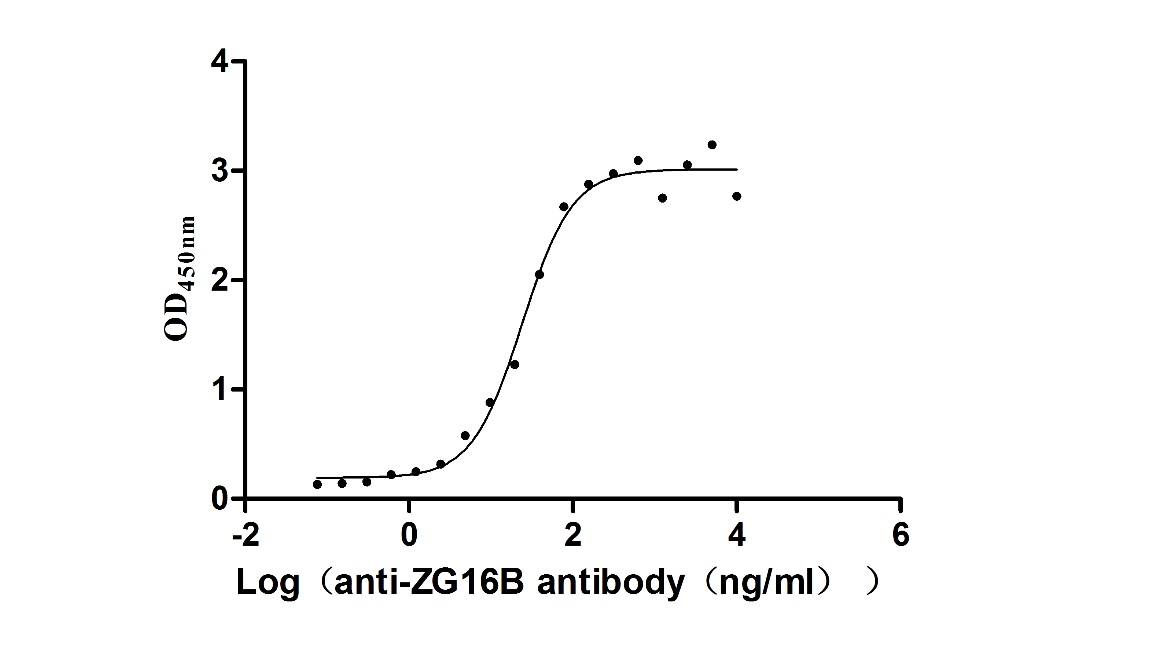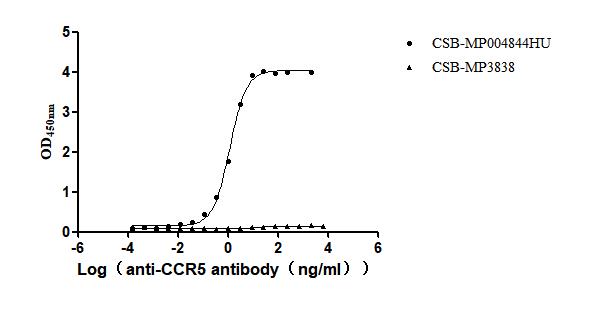Recombinant Human Peroxisome proliferator-activated receptor delta (Ppard), partial
In Stock-
货号:CSB-EP018423HU1
-
规格:¥1836
-
图片:
-
其他:
产品详情
-
纯度:Greater than 85% as determined by SDS-PAGE.
-
基因名:
-
Uniprot No.:
-
别名:FAAR; MGC3931; NR1C2; NUC1; NUCI; NUCII; Nuclear hormone receptor 1; Nuclear receptor subfamily 1 group C member 2; Peroxisome proliferative activated receptor delta; Peroxisome proliferator-activated receptor beta (PPAR-beta); Peroxisome proliferator-activated receptor beta; Peroxisome proliferator-activated receptor delta; PPAR beta; PPAR-beta; PPAR-delta; PPARB; ppard; PPARD_HUMAN
-
种属:Homo sapiens (Human)
-
蛋白长度:Partial
-
来源:E.coli
-
分子量:35.1 kDa
-
表达区域:171-441aa
-
氨基酸序列QVADLKAFSKHIYNAYLKNFNMTKKKARSILTGKASHTAPFVIHDIETLWQAEKGLVWKQLVNGLPPYKEISVHVFYRCQCTTVETVRELTEFAKSIPSFSSLFLNDQVTLLKYGVHEAIFAMLASIVNKDGLLVANGSGFVTREFLRSLRKPFSDIIEPKFEFAVKFNALELDDSDLALFIAAIILCGDRPGLMNVPRVEAIQDTILRALEFHLQANHPDAQYLFPKLLQKMADLRQLVTEHAQMMQRIKKTETETSLHPLLQEIYKDMY
Note: The complete sequence including tag sequence, target protein sequence and linker sequence could be provided upon request. -
蛋白标签:N-terminal 6xHis-tagged
-
产品提供形式:Liquid or Lyophilized powder
Note: We will preferentially ship the format that we have in stock, however, if you have any special requirement for the format, please remark your requirement when placing the order, we will prepare according to your demand. -
缓冲液:Tris-based buffer,50% glycerol
-
储存条件:Store at -20°C/-80°C upon receipt, aliquoting is necessary for mutiple use. Avoid repeated freeze-thaw cycles.
-
保质期:The shelf life is related to many factors, storage state, buffer ingredients, storage temperature and the stability of the protein itself.
Generally, the shelf life of liquid form is 6 months at -20°C/-80°C. The shelf life of lyophilized form is 12 months at -20°C/-80°C. -
货期:3-7 business days
-
注意事项:Repeated freezing and thawing is not recommended. Store working aliquots at 4°C for up to one week.
-
Datasheet & COA:Please contact us to get it.
相关产品
靶点详情
-
功能:Ligand-activated transcription factor. Receptor that binds peroxisome proliferators such as hypolipidemic drugs and fatty acids. Has a preference for poly-unsaturated fatty acids, such as gamma-linoleic acid and eicosapentanoic acid. Once activated by a ligand, the receptor binds to promoter elements of target genes. Regulates the peroxisomal beta-oxidation pathway of fatty acids. Functions as transcription activator for the acyl-CoA oxidase gene. Decreases expression of NPC1L1 once activated by a ligand.
-
基因功能参考文献:
- Results suggest that peroxisome proliferator-activated receptor beta overexpression is not an inherent property of breast cancer cell lines, but it may play a role through activation of downstream genes (PPARbeta). PMID: 12009300
- 4 polymorphisms were found: -409C/T (promoter, +73C/T (exon 1), +255A/G (exon 3), & +294T/C (exon 4). An interaction with the PPAR alpha L162V polymorphism was also detected for several lipid parameters. PPARD plays a role in cholesterol metabolism. PMID: 12615676
- The 15-lipoxygenase-1 product 13-S-hydroxyoctadecadienoic acid down-regulates PPAR-delta to induce apoptosis in colorectal cancer cells. PMID: 12909723
- results implicate PPAR-delta in the regulation of intestinal adenoma growth PMID: 14758356
- Positive associations of PPAR-delta polymorphisms with fasting plasma glucose and BMI detected in nondiabetic control subjects PMID: 14988273
- gene regulation by PPARdelta in the uterine cells uniquely responds to SRC-2, N-CoR, SMRT, or RIP140, and these interactions may be operative during implantation when these cofactors are abundantly expressed. PMID: 15001550
- PPAR-beta/delta activation stimulates keratinocyte differentiation, is anti-inflammatory, improves barrier homeostasis, and stimulates triglyceride accumulation in keratinocytes. PMID: 15102088
- 11beta-HSD2 is an additional target for PPAR delta, which may regulate human placental function PMID: 15591138
- This study was performed to determine whether specific activation of PPARdelta has direct effects on insulin action in skeletal muscle. PMID: 15793256
- COX-2 immunopositivity was significantly associated with PPARbeta and PPARgamma immunoreactivity. Microvessel density was significantly higher among PPARbeta-immunoreactive squamous cell carcinomas. PMID: 15811118
- PPARdelta signaling pathways are interconnected at the level of cross-regulation of their respective transcription factor mRNA levels PMID: 15890193
- PPARdelta expression is up-regulated between the first and third trimester, indicating a role for this nuclear receptor in placental function PMID: 15979543
- PPARdelta + 294T/C gene polymorphism in subjects with metabolic syndrome may be involved in the occurrence of obesity and dyslipidemia. PMID: 16053787
- PPARdelta partially rescued prostate epithelial cells from growth inhibition and also dramatically inhibited sulindac sulfide-mediated p21WAF1/CIP1 upregulation. PMID: 16091736
- PPARdelta +294T/C polymorphism has no influence on plasma lipoprotein concentrations, body mass index or atherosclerotic disease either in healthy subjects or in patients with DM-2, both in males and females. PMID: 16285997
- Single nucleotide polymorphisms of PPARD primarily affected insulin sensitivity by modifying glucose uptake in skeletal muscle but not in adipose tissue. PMID: 16306381
- The expression of PPARdelta gene in rectal cancers is not statistically different from normal mucosa. PMID: 16361076
- Human platelets contain PPARbeta and that its selective activation inhibits platelet aggregation. PMID: 16368717
- Data describe the activated form of the peroxisome proliferator-activated receptor-beta/delta using a ligand binding domain model. PMID: 16387648
- This review concludes that PPAR delta has emerged as a powerful metabolic regulator in diverse tissues including fat, skeletal muscle, and the heart. PMID: 16511591
- PGI2 protects endothelial cells from H2O2-induced apoptosis by inducing PPARdelta binding to 14-3-3alpha promoter, thereby upregulating 14-3-3alpha protein expression. PMID: 16645156
- data provide further evidence for an involvement of PPARdelta in the regulation of BMI. PMID: 16652134
- Skeletal muscle mRNA expression of PPAR delta increased in type 2 diabetic patients with an improved clinical profile following low-intensity exercise, but were unchanged in patients who did not show exercise-mediated improvements in clinical parameters. PMID: 16752430
- Single nucleotide polymorphisms in PPARD modify the conversion from glucose intolerance to type 2 diabetes. PMID: 16804087
- Therefore, these results indicate that induction of fatty acid oxidation with PPARbeta activators during short-term exposition is not sufficient to correct for insulin resistance in muscle cells from type 2 diabetic patients. PMID: 16897074
- PPARbeta/delta is a novel regulator of endothelial cell proliferation and angiogenesis through VEGF. PMID: 17068288
- PPARD-87T/C polymorphism is associated with higher fasting plasma glucose concentrations in both normal glucose tolerant and diabetic subjects, largely due to impaired insulin sensitivity PMID: 17116180
- PPAR-delta activation increases cholesterol export and represses inflammatory gene expression in macrophages and atherosclerotic lesions. PMID: 17119917
- support the rationale for developing PPARdelta antagonists for prevention and/or treatment of cancer PMID: 17148604
- These studies demonstrate that ligand activation of PPARbeta/delta does not lead to an anti-apoptotic effect in either human or mouse keratinocytes, but rather, leads to inhibition of cell growth likely through the induction of terminal differentiation. PMID: 17254750
- DNA sequence variation in the PPARdelta locus is a potential modifier of changes in cardiorespiratory fitness and plasma HDL-C in healthy individuals in response to regular exercise. PMID: 17259439
- Low PPARD expression is associated with Prostate Cancer Growth. PMID: 29187400
- Study demonstrates that oleanolic acid, as a natural product, can ameliorate the high glucose-triggered endothelial function by activating the nuclear receptor PPARdelta. PMID: 28067284
- PPARD rs7770619 is a novel candidate variant for impaired fasting glucose and type 2 diabetes and shows association with malondialdehyde levels. PMID: 29776318
- The negative responders for aerobic training are carriers of the PPARD rs2267668 G allele. The best responders to aerobic training are PPARD rs1053049 TT and rs2267668 AA. PMID: 29762540
- The current results suggest that A/A carriers of PPAR-delta SNP (rs2267668) may enjoy fewer beneficial effects of exercise-centered lifestyle intervention on anthropometric indices and blood measurements. PMID: 29494521
- Polymorphism of PPARD is associated with late onset of type 2 diabetes mellitus. PMID: 28292576
- findings suggest that PPARdelta conditions CLL cells to survive in harsh microenvironmental conditions by reducing oxidative stress and increasing metabolic efficiency. PMID: 28050012
- Here, thes describe a novel PPARbeta/delta-dependent molecular cascade involving TGFbeta1 and miR-21-3p, which is activated in the epidermis in response to UV exposure. PMID: 27250636
- findings identified previously unrecognized role of IP-PPARdelta signal transduction pathway in the production of sAPPalpha in cerebral microvasculature. PMID: 26661245
- the metabolic events, controlled by PPARs, occurring during neuronal precursor differentiation, the glucose and lipid metabolism was investigated. PMID: 27860527
- PPAR-delta activation prevents in-stent restenosis and stent thrombosis. PMID: 27283742
- findings identify LPCAT3 as a direct PPARdelta target gene and suggest a novel function of PPARdelta in regulation of phospholipid metabolism through LPCAT3. PMID: 27913621
- The minor allele of rs2016520 and rs9794 in PPAR-delta and interaction between rs2016520 and non-smoking were associated with decreased risk of CVD. PMID: 28287878
- a novel SNP x SNP interaction between rs2267668 in PPARdelta and rs7191411 in EMP2 that has significant impact on circulating HDL-C levels in the Singaporean Chinese population. PMID: 27530449
- Results indicate that PPARdelta-mediated downregulation of Nox4 modulates cellular redox status, which in turn plays a critical role in extracellular matrix homeostasis through ROS-dependent regulation of MMP-2 activity. PMID: 26403493
- The PPAR-beta role in neuroblastoma cell tumorigenesis and differentiation PMID: 27996177
- These observations candidate PPARs as new biomarkers of follicle competence opening new hypotheses on controlled ovarian stimulation effects on ovarian physiology. PMID: 26332656
- The PPAR delta role in neuroblastoma cell tumorigenesis and differentiation PMID: 27996177
- PPARdelta activation may be a potential risk of atherosclerosis through enhancing activity of SMS2 PMID: 27278004
显示更多
收起更多
-
亚细胞定位:Nucleus.
-
蛋白家族:Nuclear hormone receptor family, NR1 subfamily
-
组织特异性:Ubiquitous with maximal levels in placenta and skeletal muscle.
-
数据库链接:
HGNC: 9235
OMIM: 600409
KEGG: hsa:5467
STRING: 9606.ENSP00000310928
UniGene: Hs.696032
Most popular with customers
-
Recombinant Human Tumor necrosis factor receptor superfamily member 18 (TNFRSF18), partial (Active)
Express system: Mammalian cell
Species: Homo sapiens (Human)
-
Recombinant Dog Angiopoietin-2 (ANGPT2) (Active)
Express system: Mammalian cell
Species: Canis lupus familiaris (Dog) (Canis familiaris)
-
Recombinant Human Microtubule-associated protein tau (MAPT) (Active)
Express system: Mammalian cell
Species: Homo sapiens (Human)
-
Recombinant Human Dickkopf-related protein 1 (DKK1) (Active)
Express system: Mammalian cell
Species: Homo sapiens (Human)
-
Recombinant Macaca fascicularis zymogen granule protein 16 homolog B (ZG16B) (Active)
Express system: Mammalian cell
Species: Macaca fascicularis (Crab-eating macaque) (Cynomolgus monkey)
-
Recombinant Human C-C chemokine receptor type 5 (CCR5)-VLPs (Active)
Express system: Mammalian cell
Species: Homo sapiens (Human)

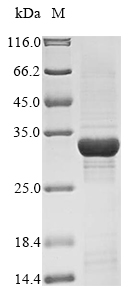

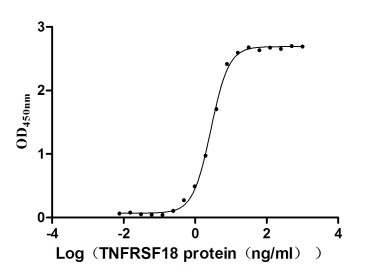
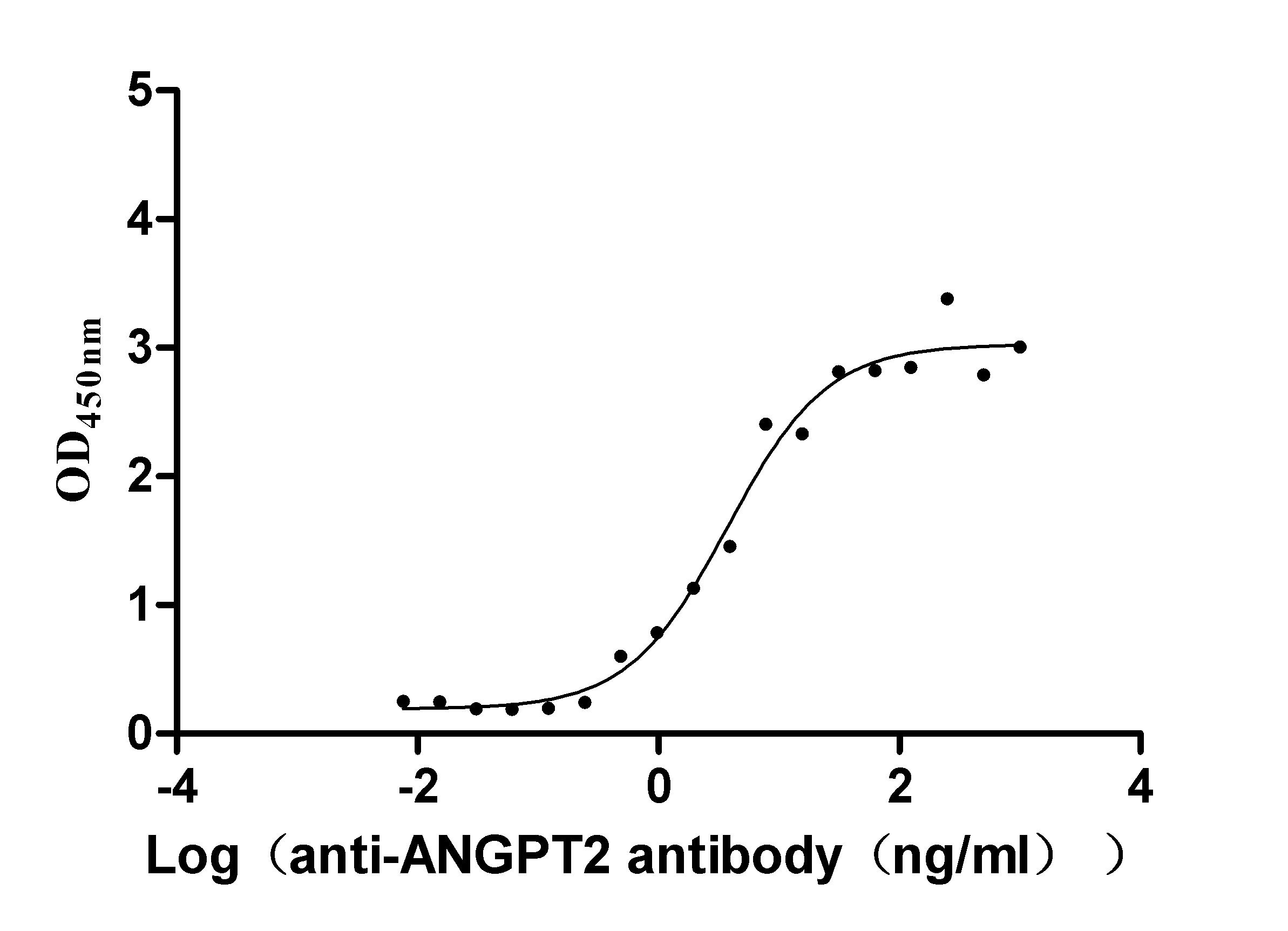
-AC1.jpg)
-AC1.jpg)
